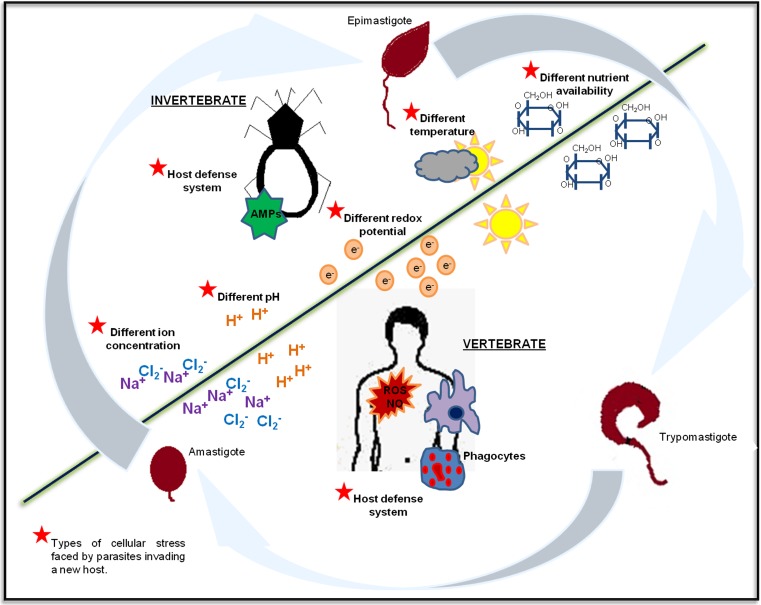Fig. 2.
General life cycle of parasites of medical importance. The vast majority of parasites have complex life cycles that require a number of hosts and transformations into various stages to complete their biological period. The different hosts (invertebrates or vertebrates) or environments (water, soil, feces) through which a parasite passes its life cycle throughout its various stages of development are indicated by underlined and uppercase text. The passage from one host to another or to the environment usually involves the generation of cellular stress (indicated by a red star), which, in some cases, leads to the differentiation of the parasite. The diagram represents the life cycle of the protozoan Trypanosoma cruzi; this parasite passes through three main stages (epimastigote, trypomastigote, and amastigote) during its path from an invertebrate host to a vertebrate host (Color figure online)

